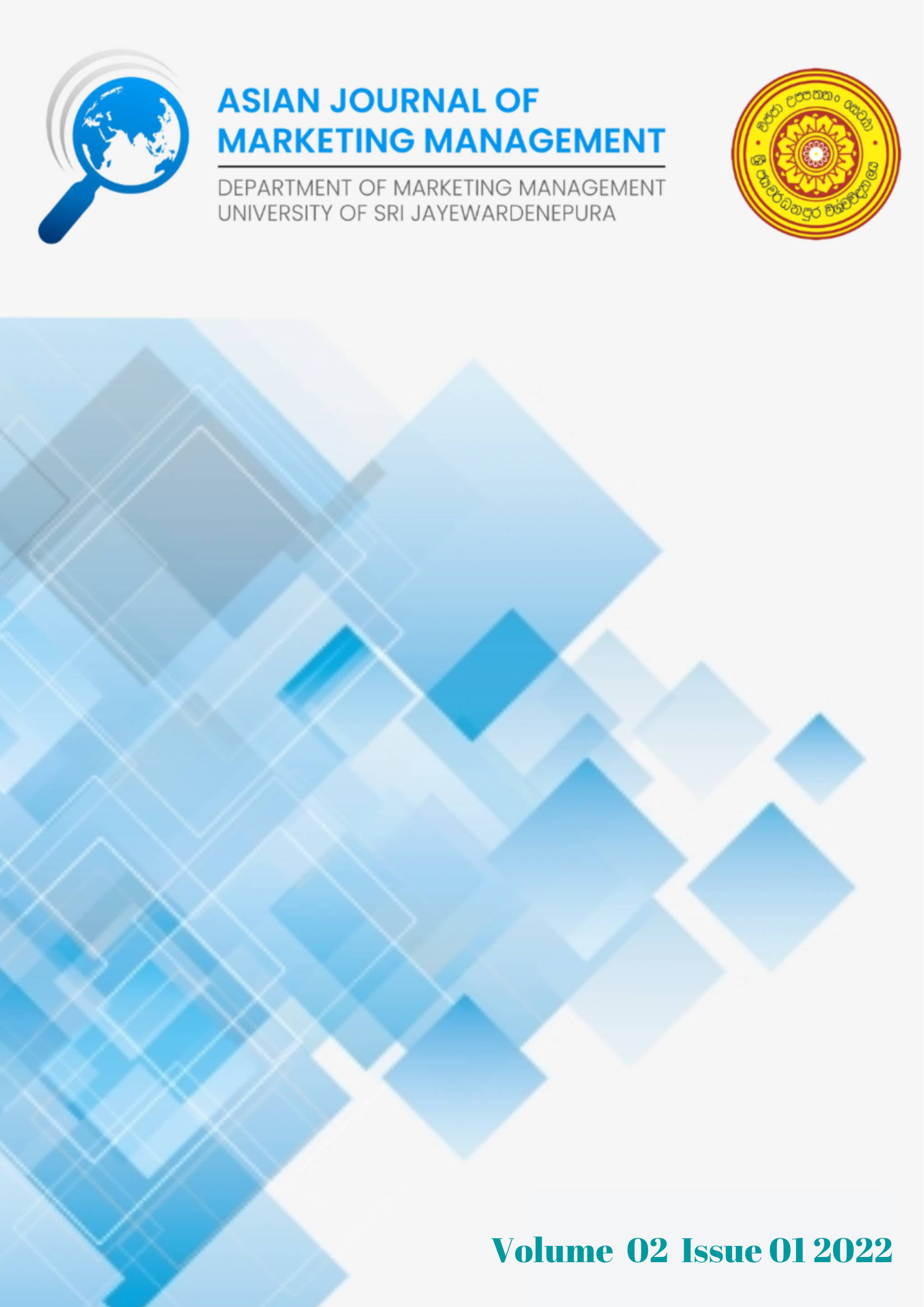Editorial Note
Abstract
Editorial Note
Editor-in-Chief for Asian Journal of Marketing Management (AJMM), Department of Marketing Management, Faculty of Management Studies and Commerce, University of Sri Jayewardenepura, Sri Lanka, are delighted to issue Volume 1, Issue II of the Journal. This issue of AJMM disseminates new knowledge through selected six scholarly papers that comprehensively investigate current and critical real marketing scenarios.
The first paper is for investigates the impact of experiential marketing on customer loyalty with the mediating role of customer satisfaction in supermarkets in the western province of Sri Lanka. 375 respondents have been used in the modern trade context and disclosed that the indirect impact created through the mediation effect of customer satisfaction is higher than the direct impact of experiential marketing on customer loyalty by further emphasising the power of customer satisfaction in the modern trade.
The second paper offers insight into the post-pandemic of Covid-19 context in Sri Lanka in terms of investigating factors that influence consumers’ online grocery purchase intention. The use of the SEM model revealed that perceived ease of use and perceived usefulness positively and significantly impact the online purchase intention of consumers. Further, it disclosed that hedonic motivation did not affect the online purchase intention of consumers in this context.
Thirdly, the role of interpersonal trust in the relationship between employee innovative behaviour and customer participation is examined with special reference to the hospitality industry in Sri Lanka. Using both customers’ and employees’ perspectives, the study reveals that increasing the level of interpersonal trust between customers and employees may boost employee innovative capacity.
The fourth paper is focused on a textual analysis of a commercial and its contribution to Sri Lankan society amid Covid-19. “ITUKAMA’, the “Hero” and the Nation has been studied as the commercial. The textual analysis used here provides a close perception of the commercial and the campaign in relation to the social theories.
Factors that influence the usage of e-wallets among millennials in the Sri Lankan context are the focus of the fifth paper. The findings revealed that there are significant strong relationships between the perceived usefulness of e-wallets, perceived ease of use, privacy, and security of e-wallets. Furthermore, it emphasized that the behaviour intention to use e-wallets is the most important aspect that millennials perceive when it comes to e-wallet usage.
The sixth paper is to perform a comprehensive study on the impact of social media influencers’ credibility on the purchase intention for beauty care products in Sri Lanka. It discloses that credibility has a positive strong influence towards purchase intention while exploring trustworthiness as the most impactful credibility factor towards purchase intention in this context.
Finally, we extend our sincere gratitude to all the authors for their valuable contribution through research articles and for their patience in reviewing process; to reviewers for their constructive comments that bring the papers to a publishable level; to language editors for their service rendered for the Journal; and to the editorial assistant as well as web assistants for the smooth operation of the Journal.





